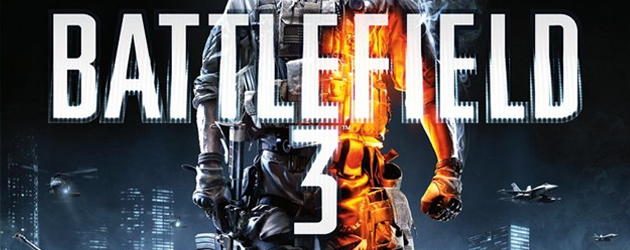Ein wenig hatte wohl das Schicksal seine Finger im Spiel, als es ein Interview zwischen Gamasutra und Patrick Bach, Executive Producer für Battlefield 3 bei DICE, und den lang erwarteten und massiv gehypten Start der Battlefield 3-Beta im Abstand von kaum einem Tag geschehen ließ. Gamasutra zitiert Bach mit der Aussage, er schäme sich für alle mit seiner Mitwirkung entstandenen Spiele. Dies gehe soweit, dass er Battlefield: Bad Company 2 (BC2) nicht einmal starten könne, weil er sich so sehr schäme. Viele Beschäftigte bei DICE, darunter Bach selbst, hätten dieses Gefühl, dass man mit nur einer Woche mehr so viel mehr hätte machen können.
Wer nun dem Battlefield-Franchise folgt, mindestens seit der Beta für Battlefield 2142(BF2142), teilweise aber auch schon seit dessen Vorgänger Battlefield 2(BF2), der wird kaum umhin kommen den Zynismus dieses Statements, auch im Hinblick auf die aktuelle Beta, zu erkennen.
Wo Bach sich nämlich offenbar mehr Zeit wünscht, an Features oder Design zu arbeiten, erinnern Fans sich an teils schwerwiegende Bugs, die nachweislich seit den Betas für BF2142 bzw. BC2 und dann noch mehrere Monate nach Release bestanden. Man denke an Wallglitching in BF2 oder BF2142, das jeweils sogar erst Jahre nach Release spielseitig unterbunden wurde.
Hierin liegt dann auch die große Problematik, vor der viele Fans die Augen zu verschließen scheinen: DICE hat eine extrem schlechte Bilanz vorzuweisen, wenn es um die Behebung von Bugs geht. Dass nur noch vier Wochen bis zum Release von Battlefield 3 zur Verfügung stehen, dient angesichts dessen sicher nicht der Vertrauensbildung. Beruhigend könnte man anführen, dass DICE mehr oder weniger bereits einen Patch zum Release in Aussicht gestellt hat und die Beta ein rund ein Monat alter Schnappschuss des Spiels ist. Dies war aber bei bisherigen Betas auch nicht anders!
Das nächste Problem, um nicht zu sagen die nächste Krise, zeichnet sich derweil schon ab und wieder muss traurigerweise auf die bisherigen Veröffentlichungen verwiesen werden, denn sowohl BF2142 als auch BC2 waren über mehrere Wochen nach Release von Kapazitätsengpässen bei Login- und Accountservern geprägt und der massiv von Latenzproblemen gezeichnete Start der BF3-Beta deutet darauf hin, dass die erst kürzlich überschrittene Marke von 1,5 Millionen Vorbestellungen im Hause DICE keine Denkprozesse und Überlegungen auszulösen scheint.
Um zum Eingangsgedanken zurückzukehren, der einen Woche mehr Zeit um “mehr” aus den Spielen zu machen, so würde ich mich dem anschließen: wenn dafür endlich einmal ein reibungs- und komplikationsloser Launch möglich wäre, wäre das großartig. Die bisherigen Erfahrungen legen aber die Vermutung nahe, dass eine Woche nie gereicht hätte und auch jetzt nicht reichen würde.






Mass Effect Endings: How others did it
Dear BioWare,
dear Casey Hudson,
dear Mass Effect team.
Let’ s be blunt: you’re not the first video game developer to kill a loved player character or gaming franchise nor will you be the last. Others who came before you did significantly better though, allowing character and player to part ways in peace and with a feeling of closure. Let’s look at some of them.
Wing Commander
Between 1990 and 1997 Christopher Blair was the player’s character in no less than 4 full Wing Commander games and a number of expansions, fighting the alien cat-race Kilrathi in 3 of these adventures and a totalitarian human splinter group in the fourth. With Mark Hamill playing the war hero, WCIII and WCIV clearly portrayed a Christopher Blair on whom years of war and great loss had left their mark, leading to a new player character in Wing Commander V: Prophecy and Blair in an observer/mentor role for the newly recruited pilot. WCV saw an extremely hostile and vastly superior alien race from unknown depths of space invade human colonies and kill everyone in their path. Sound oddly familiar? Well… Throughout the course of the game, Blair would die in an act of selfless sacrifice, not only leaving players with a new virtual incarnation, but also departing in worthy heroic fashion and providing sufficient closure on the long and hard trek he and the player had shared. Decisions made throughout the games would usually influence the events and game endings, not only but also regarding the presence of love interests, new technology, support on and off the battlefield and more – much as had been promised for ME3.
Assassin’s Creed
Dragon Age
Most of us can live with these approaches to the problem. Why did Mass Effect, after all synonymous to great story telling, fall behind so much in this regard? The examples above show that it can be done and I’m sure more could be found as well.